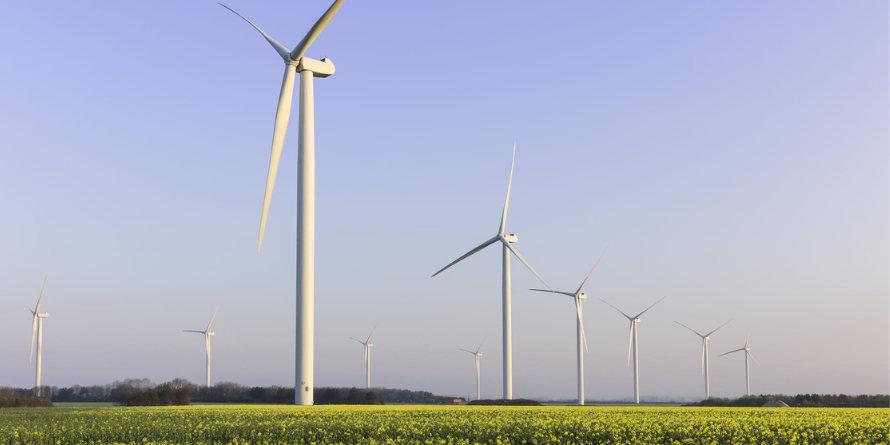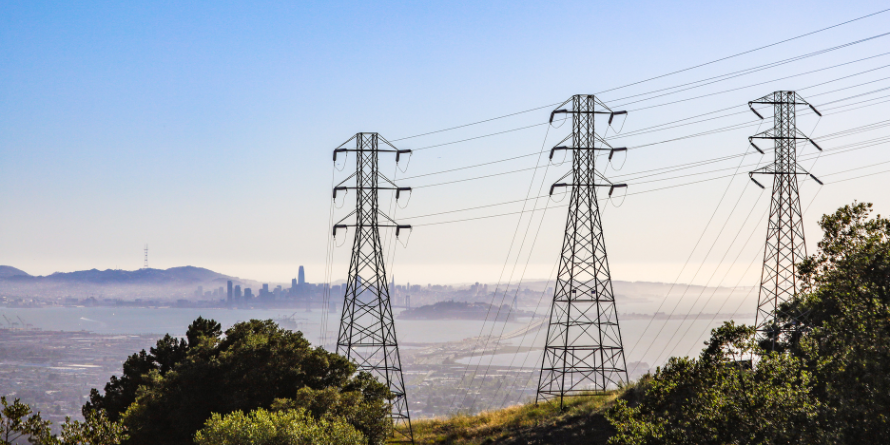Posted on: 22/07/2024
Two weeks ago, the Labour Party secured a victory in the general election and have started setting out their priorities on energy and climate. In this blog, Ashley Armitage, Strategic Development Manager of C&I Sales, reviews the new governments priorities, how achievable they are and their potential impact on the UK’s energy industry.
Following a Labour election campaign prioritising energy, Ed Miliband, the newly appointed Energy Secretary, has unveiled his priorities for the Department of Energy Security and Net Zero with ambitions to make Britain a clean energy superpower with zero carbon electricity by 2030, and accelerate the net zero transition.
1. To boost energy independence and cut bills through clean power by 2030
Labour aims to move the UK away from using foreign fossil fuels, cut energy bills and drive the net zero transition by making electricity 100% renewable by 2030.
This announcement marks a significant shift in the UK’s energy policy, with the aim of achieving net zero emissions within the next 6 years, 5 years sooner than the plans previously laid out by the Conservative government.
This shift will require billions of pounds of investment and significant changes to infrastructure, policies and planning restrictions, and with only 51% of Britain’s electricity mix provided by zero carbon power sources in 2023, we have a way to go. However, one major change is already underway, as the de facto ban on onshore wind, in place since 2015, has been removed, supporting targets to double onshore wind capacity by 2030.
2. To take back control of our energy with new public energy company, Great British Energy
The new publicly owned energy company will act as an investment vehicle to accelerate the renewable energy transition, funded by a windfall tax on the record profits of oil and gas companies.
Its first focus will be on energy generation, investing in new emerging technologies, such as floating offshore wind, tidal and renewable hydrogen, and supporting and scaling both mature technologies, such as wind, solar and nuclear. This investment aims to deliver at least 8GW of community renewables over the course of the next Parliament, with the intent to create affordable energy and support the growth of clean power sources.
3. To upgrade Britain’s homes and cut fuel poverty
Under its new Warm Homes Plan, Labour aims to upgrade 19 million UK homes over the course of the next decade with improved insulation. They have pledged £6.6bn over the next parliament to rollout this plan, which is double the existing planned investment from the Conservatives, to ultimately reduce energy demand and save on energy bills.
4. To stand up for consumers by reforming the energy system
In order to decarbonise, digitise and build the future energy system required, significant changes are needed. Labour plans to overhaul the current energy system, and strengthening the grid infrastructure will be a priority to facilitate the connection of renewable power generation and industrial electrification.
They also plan to review market regulation, reduce standing charges and ensure higher performance standards to support consumers.
5. To create jobs
As part of Labour's aims transition to net zero, they have planned to end new fossil fuel projects in the North Sea, and whilst this is a step towards tackling climate change, this has raised job loss concerns across the energy industry.
However, with the National Wealth Fund, Labour intends to direct investments in green infrastructure and technologies to foster innovation and the creation of high-quality jobs, bringing the people of Britain on the green transition journey.
6. To lead on international climate action
With this final priority, Ed Miliband wants to restore the UK's position as a global leader on climate action. The UK’s carbon emissions have fallen by 52% since their peak in 1971, a more significant drop than any other comparable nation, according to new analysis, and Labour hopes to continue this charge with ambitious targets to double onshore wind, triple solar, quadruple offshore wind by 2030 and lead the way to net zero.
The current plans and priorities for the energy sector have received praise from the industry for taking steps in the right direction. We hope to see further action to support the renewable energy transition for both generators and end consumers.
Find out more about the expected changes affecting corporates amid this transforming energy landscape with our new Guide to Regulatory Changes in the Renewable Electricity Market free to download now!

 United States
United States Australia
Australia






